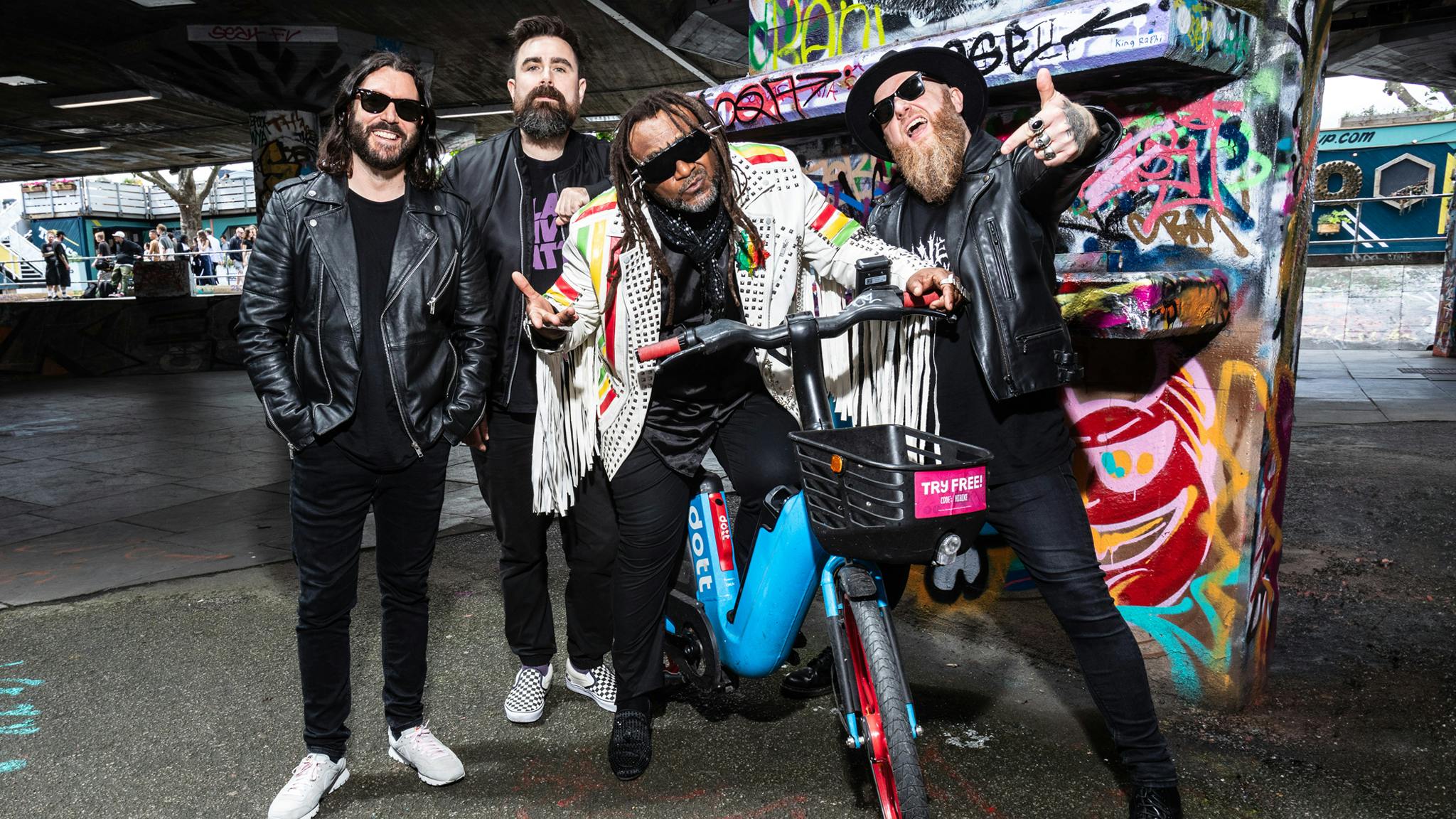Paul Stanley, aged 71, is zip lining some 50 feet above the ground. Mikey Demus, fresh from a support slot that’s undoubtedly brought some KISS fans into the Skindred fold, is taking notes. “People may say, ‘KISS are getting on a bit,’ but for me that’s the sell,” explains Mikey. “These guys are my dad’s age. I couldn’t convince him to come to a show like this as a fan, and these guys are up there in platform shoes, performing all sorts of aerial antics and hitting all the notes. It’s a masterclass in performance.”
It’s a lesson, too, in the fact that when it comes to a career in rock, it really is a marathon rather than a sprint. But, according to Mikey, you have to want to run that marathon.
“We’re all still headed somewhere. We love where we are and are stoked to be doing what we’re doing but we’re still hungry for more. I want what those guys have got,” he says, gesturing towards the men in black and white make-up making dreams come true.
Benji, meanwhile, has long since made his dreams come true. No-one knew that better than his sister, Letty, who, unlike his brothers, was behind Benji’s musical ambitions from the word go. After a childhood characterised by loss, he had begun to feel impervious to heartache, but then five years ago Letty passed away.
“That beat the shit out of me,” Benji says, before revealing that the week before she died, Letty went to a Skindred show in Bristol. Afterwards, she threw her arms around her brother and congratulated him for living his dreams uncompromisingly. “She said, [Benji’s birth name] ‘Clive Webbe, you got what you wanted – you sing, you scream, you call people c**ts and you get paid for it.’”
